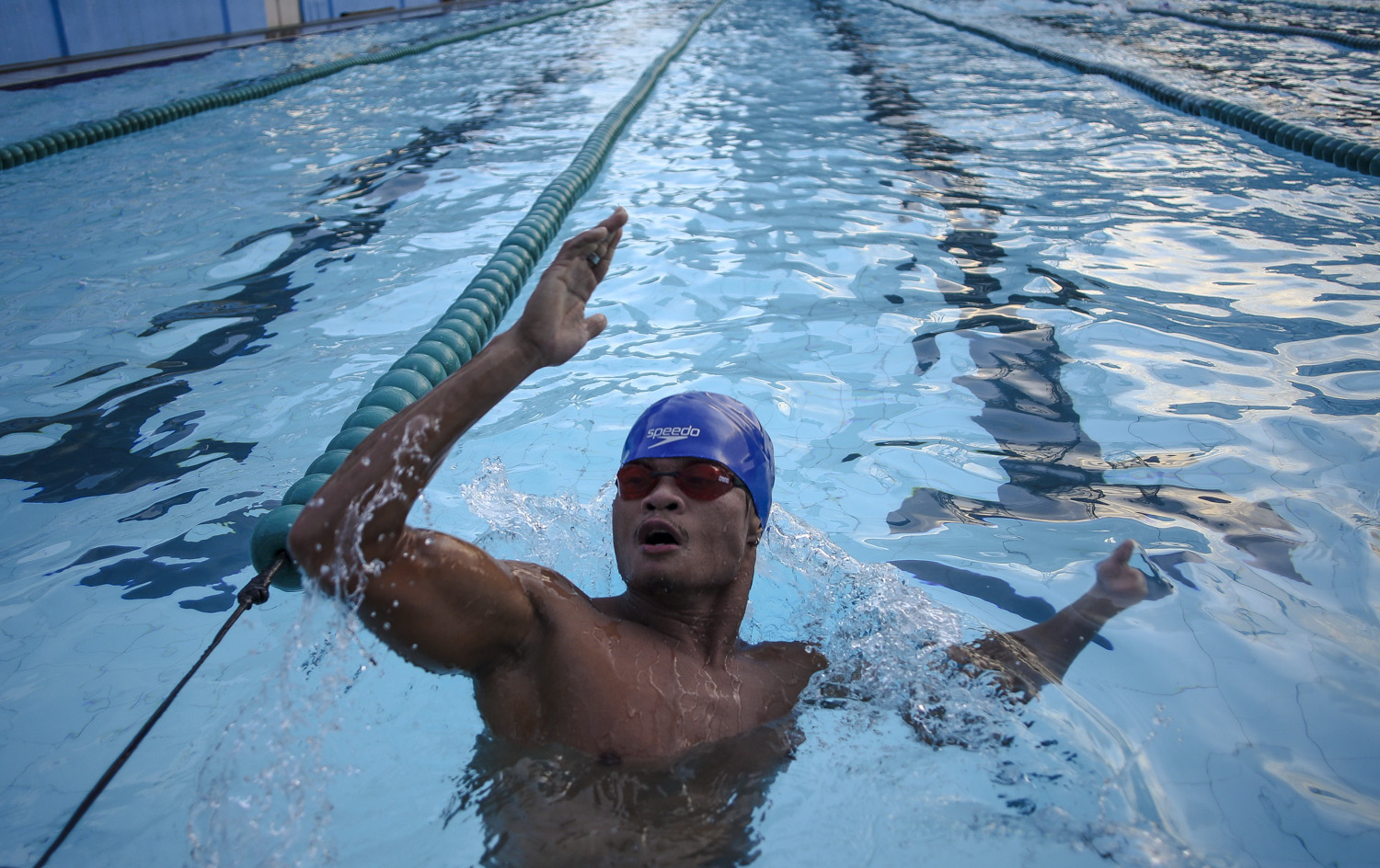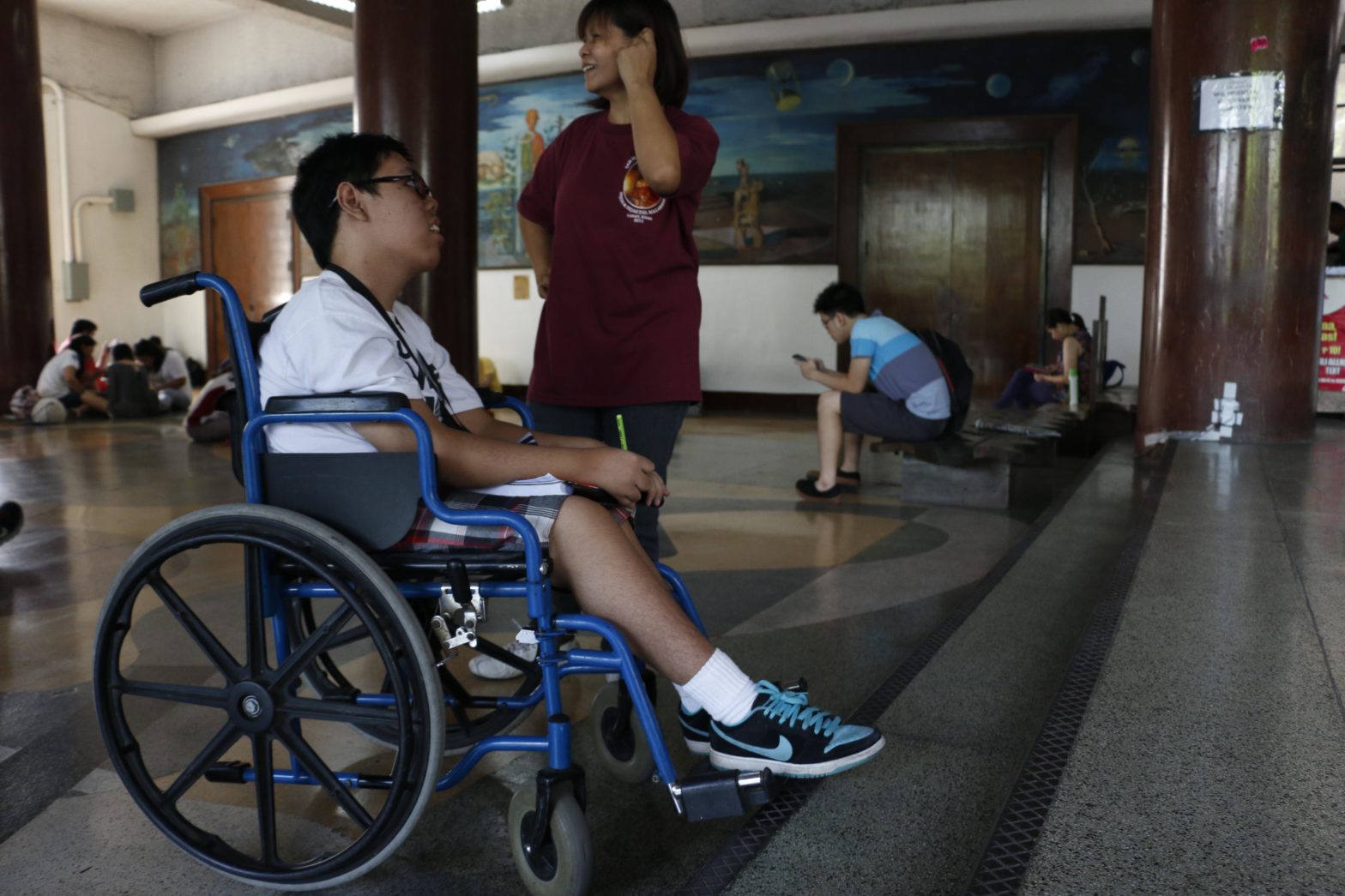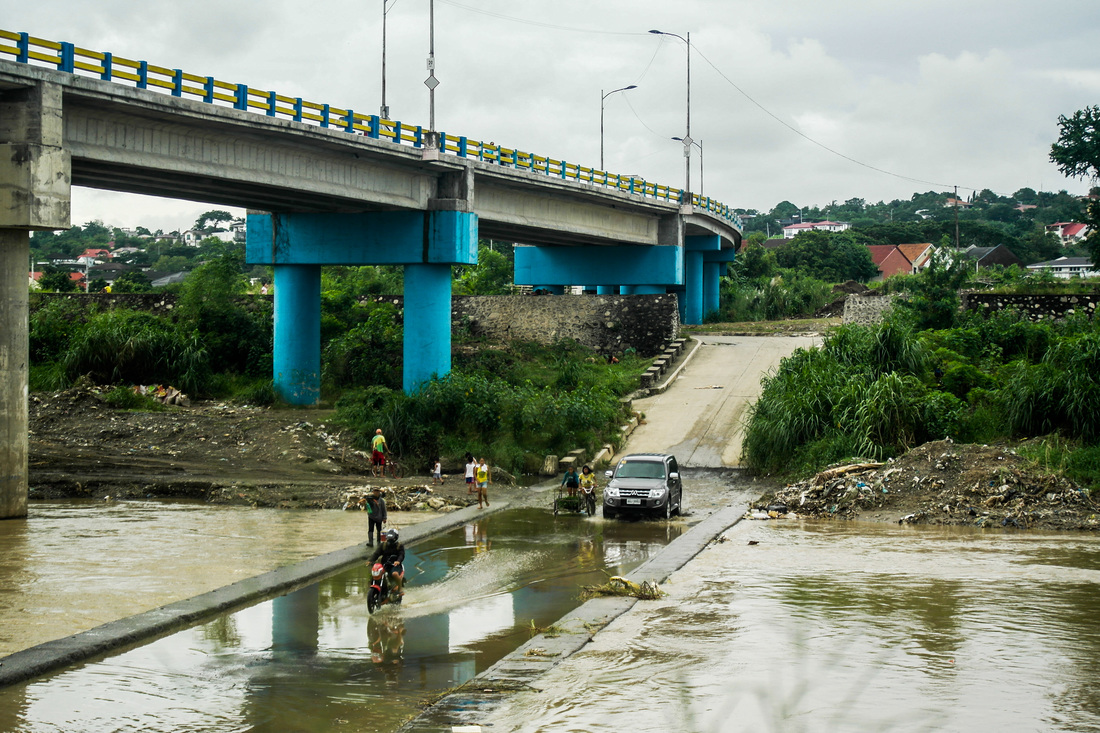[metaslider id=48197]
Text and Photos by ALANAH TORRALBA
THE country’s representative in swimming at the Rio Paralympic Games, the equivalent of the Olympics for athletes with disabilities, has just finished his first event yesterday. There was not much fanfare for Ernie Gawilan, 25, who finished 10th in the Men’s 400m Freestyle.
Getting a medal would have been a lot better, but for Gawilan, competing in sports’ most prestigious stage is an achievement borne of eight years of hard work as a national athlete.
Gawilan is part of a small delegation of athletes composed of Adeline Ancheta (power lifting), Agustine Kitan (power lifting), Jerrold Manglinaw (athletics) and Josephine Medina (table tennis) who are representing the Philippines in Rio de Janeiro in Brazil.
As preparation for Rio, Gawilan had to swim a minimum of six kilometers everyday. Some days, he had to wake up at dawn to begin his morning workout in the pool followed by weight training by mid afternoon. In the evening, he would swim another six kilometers, bringing his daily laps in the pool to 12 kilometers.
The training, Gawilan admits, was punishing. He had even fallen ill in June, a few months prior to his departure for Rio. He must have pushed himself too hard, he says.
Gawilan, who was born with underdeveloped extremities, has been breaking records in Southeast Asia since 2009. At the 8th Asean Para Games in 2015, he set a new record by slashing the previous record by 4 seconds. He brought home a silver and two gold medals which earned him a spot to the 2016 Paralympic Games. He says he still cannot believe he was able to qualify for the Paralympics.
An orphan at an early age, Gawilan was living at the Our Lady of Victory Training Center in Samal, Davao when he was discovered by another PWD athlete. It was in the center, which was near the beach, where Gawilan learned how to swim. “The center had a beach resort and the PWDs were encouraged to swim. Like water therapy, I was in the ocean everyday, ” he says.
He then moved to Manila to train as a national athlete and qualified for his first Asean Para Games the same year, where he broke his first record.
He has competed in various international competitions and brought home an assortment of medals despite the hardships typically faced by athletes in this country.
Gawilan lives in an athlete’s dorm at the PhilSports Arena in Pasig City. He stays in a room with seven other PWDs who must also face the challenges of accessibility and training as athletes in a sports complex where ramps and rails are lacking.
After a grueling training session at the pool, Gawilan and his friends must go back to their dorms to cook their food. Often, he is too tired to cook a complete meal and relies on protein shakes provided by the swimming team’s sponsor instead. While he recognizes that getting nourishment after a workout is important, sometimes he is just too tired to make a meal for himself.
Perennial problems of delayed allowances also hound the athletes. Tony Ong, the swimming team coach, recalls that in 2014 while they were training for the Asean Para Games, allowances were so delayed that the athletes had to rely on the camote leaves planted in their backyard for sustenance.
“Kahit papaano this year dumating na po yung allowance (This year we had already gotten our allowances. So at least it is not delayed,” Gawilan says.
The Rio 2016 games is Gawilan’s biggest competition yet. Aside from the 400-meter freestyle, he will also be competing in the 100-meter backstroke and 100-meter freestyle.
His campaign comes at the heels of weightlifter Hidilyn Diaz’s silver medal at the recently concluded Olympics. After Diaz’s historic win, Gawilan says that he and his fellow athletes are inspired to do their best for the country. There is a palpable excitement among the athletes. “Proud ako sa kanya at napatunayan niyang magaling ang Pinoy (I am proud of her because she has proven that the Filipino is world-class.),” he says.
Diaz, the country’s first female Olympic medalist, ended the country’s 20-year Olympic medal drought. She has received P5 million as incentive from the government, P1.5 million from the House of Representatives, a house and lot and other benefits. President Rodrigo Duterte had even given her an additional P2 million bonus.
Under Republic Act 10699, athletes who win gold at the Olympics are granted a P10-million cash incentive. A silver medalist gets P5 million, while a bronze medalist gets P2.5 million.
Meanwhile, a PWD athlete who wins a gold medal at the Paralympics will be given P5 million. An athlete who bags silver gets P2.5 million and a bronze medalist gets P1 million.
While Gawilan is happy for Diaz, he cannot help but wonder why the incentives for athletes without disabilities are much higher than for those with disabilities.
He says it is a good thing that PWD athletes are now included in the law but he asks why they are only entitled to half of what an athlete without disabilities gets. “Pareho lang naman ang training namin pero bakit kalahati lang ang sa amin? (We go through the same kind of training but why do we get just half?),” he says.
Jerrold Maglingaw, another first-time Paralympic athlete, echoes his sentiments. “Sa benefits, mas lamang talaga ang able. Pero pare-pareho lang naman kami na nagre-represent ng bayan. (In terms of benefits, athletes without disabilities get more. But why is that? We represent the country in sports just the same),” he says.
Athletes without disabilities who have participated in the Olympics got a P40,000 per month allowance, while PWD athletes receive P15,000.
“Good start na din na nare-recognize yung (PWD) sector namin. Sana maging pantay-pantay ang pagtingin sa amin. (It’s a good start that we are getting recognition as a sector. But I hope we get to a point where people look at us equally.),” Maglingaw says.
Gawilan says he does not feel any pressure going into the games. “Basta sa akin gagawin ko yung napag-trainingan. Yung mga tinuro nila coach. Lalanguyin ko yan, bahala na ang kalooban ng Diyos (I will just apply the training that I have done and what the coaches have taught me. I will give it my all and swim. I leave it all up to God),” he says.
He recalls how he must have gotten his disabilities. “Yung nanay ko po kasi nung nasa tiyan pa nya ako, sinubukan akong ipalaglag (When I was still in my mother’s womb, my mother had tried to abort me),” he says.
But he does not hold any grudges, he says. “Ito siguro ang nakatadhana sa akin. Maging atleta kahit may kapansanan. Para maging modelo sa ibang tao at wag mawalan ng pag-asa (This must be my destiny: to be an athlete with disabilities. Maybe I was supposed to be an inspiration to other people, to never lose hope),” he says.
On the day of their flight to Brazil, Gawilan was up at dawn for his final training in the Philippines. He swam six kilometers, practicing hard for his main event, the 400-meter freestyle.
“Sa tubig ma’am naitatago ko ang kapansanan ko. Sa tubig, astig ako parang rakista. Pantay-pantay kami sa tubig (When I’m in the water, I don’t feel that I have disabilities. I feel like a rock star. We are all equal when in the water),” Gawilan says.



